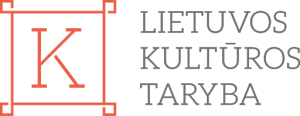#18 COLLABORATIVE PLACEMAKING
Collaboration and communing as a city-prototyping practice
Why the talk is inspiring?
The beginning of modernity in the urban history is tied to the rise of expert-led city making. Architects and urbanists – planners and designers – have tried to become the urban “problem solvers”, via a number of design-based solutions: ideas, architecture, plans or the grand designs such as roads, public spaces or new districts. The true city making forces and its actors – market forces, urban politics and actions of the residents – have remained obscured for the city makers themselves.
The end-user in urban design has returned to the focal point with the democratization and weakening of the power of its administration. Also, the rise of bottom-up forces of residents, local associations or “citizen-experts” was a sign that a city, as a complex system, cannot be efficiently managed solely by top-down and design manuals. Reversing this approach opened new opportunities for better city planning.
The talk will highlight how the devolution of city-making power, awakening of the citizen-led urban innovation and collective intelligence or promotion of local self-management can be inspiring and refreshing both for the architects and the residents. It will also highlight how such practice is crucial in building strong local democracy.
The talk is held on September 22th, Thursday, 7.00 p.m. at the Vytautas Magnus university (VMU), . Daukanto str., 28, Kaunas.
Entrance is free of charge.
2016
Speaker
Lukasz Pancewicz
How the speaker is exceptional?
Lukasz is a town planner and urban designer with working experience in Poland, Ireland and USA. He recently finished his contract as the chief urban planner in the Municipal Planning Bureau of Lodz, where he participated in the preparation of the Lodz Structure Plan 2030. He joined a new company a2p2 architecture & planning. In his practice, Lukasz engages in various roles and perspectives on city planning, including urban design, urban activism, education and writing. He is a member of the International Society of City and Regional Planners (ISOCARP), Society of Polish Town Planners and a Congress of Urban Movements. He is a Graduate of the Gdansk University of Technology (Msc and PhD). In 2011-2012 he took part in SPURS at the Department of Urban Studies and Planning, Massachusetts Institute of Technology (MIT).
RECOMMENDS TO READ
Radical Cities: Across Latin America in Search of New Architecture
Justin McGuirk
Why the book is worth reading?
“The Radical Cities” is an account of a recent history of urban activism in architecture and urbanism in Latin America. The book highlights numerous attempts to utilize architecture, generated not just by architects, but co-created by its users, as one of the tools for fighting for the improvement of the living conditions and dignity in rapidly urbanizing cities. It records a series of past experiments and projects: from the provision of self-built, low-cost housing in an experimental settlement of PREVI in Lima, Peru, merging public infrastructure and community centres in favelas in Caracas, appropriation of unfinished high-rise office block as self-managed squat to ease the pressing need for housing in Venezuela and many more. While these stories may seem distant from the urban realities of Central Europe, they all bring the refreshing perspective on the value of merging radical social experiments with a bold and brave design.
